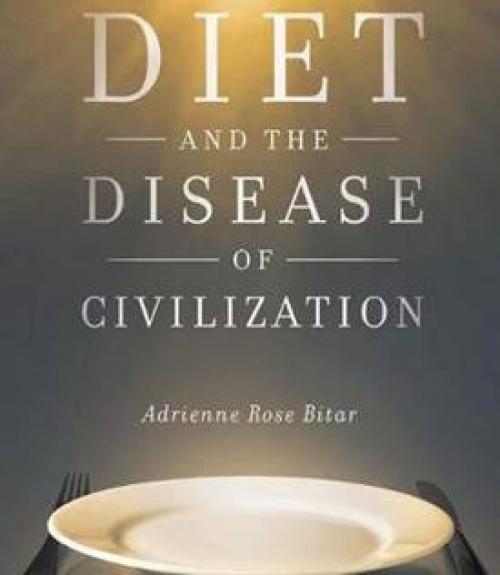Dieting is a $60 billion industry, with 45 million Americans trying to lose weight every year. But despite all the money and effort, these diets haven’t succeeded for the two-thirds of Americans who are overweight or obese. In “Diet and the Disease of Civilization,” Adrienne Rose Bitar defines “success” differently: What if diet books work like literature?
Instead of evaluating diets by their ability to promote weight loss, Bitar reads them as powerful stories. She discovered that these seemingly mundane diet books reinvent history, measuring the success or failure of civilization by the health of body and body politic. Bitar explores the myths and manifestos offered by four of the most popular diets today: the Paleo diet, the Eden diet, the precolonial diet and the detox diet.
Each of the four diets offers a similar “fall of man” narrative, remembering an original, innocent world and mourning the descent of the human race into modern disease, writes Bitar, a postdoctoral associate in the Department of History. “Paleo diets mourn our buried caveman past; devotional diets remember God’s grace; primitive diets lament a paradise corrupted by colonialism; detoxification diets grieve for a virgin land now sullied by industry.”
Bitar found that the practical details of the diet plans took up an average of only 20 percent of the content of the hundreds of books she surveyed. The vast majority of the books were occupied with testimonials, autobiographical reflection and food philosophies, demonstrating how diet books are deeply embedded in the debate of who we are and how we should live, according to Bitar. They invite readers on a quest for “infinite perfectability” and peddle hope for a better world.
“Like other powerful narratives, diet books offer insights into how America sees itself, blames itself, and what kind of civilization it promises to make for itself,” writes Bitar.
Detox diets show how toxins worked both as a metaphor for the ills of modernity and as a touchstone for the dangers of the post-industrial environment, she explains. In the late 1980s, detoxification plans “expanded the drug and alcohol addiction framework to include food addiction and invented the notion of the ‘toxic food environment,’” she writes. When the obesity “epidemic” was declared in the late 1990s, dieters and activists alike already understood how environmental causes could be linked to epidemics of noncommunicable disease.
Today, diet books fly off the shelves by promoting a “healthy lifestyle” and prescribing an even more comprehensive worldview about the proper way to live. At its most extreme, many compulsive dieters now suffer from “orthorexia,” a new disorder identified by the American Psychiatric Association as “a pathological obsession with proper nutrition” and with “clean or healthy foods.”
Although diets have always situated weight loss and health within narratives of lofty and positive change, Bitar notes, “today’s food movement upholds even grander goals – environmental, ethical, patriotic, national, moral – by relying on the higher sensibilities of the dieter. Instead of a lesson in calories and carbohydrates, this new food movement appeals to the softer stuff that makes us human beings: our experience of pleasure and our desire to do good.”
This story also appeared in the Cornell Chronicle.




